Publications
Articles, publications, books, tools and multimedia features from the U.S. Institute of Peace provide the latest news, analysis, research findings, practitioner guides and reports, all related to the conflict zones and issues that are at the center of the Institute’s work to prevent and reduce violent conflict.
Question And Answer
Whither NATO at 75?
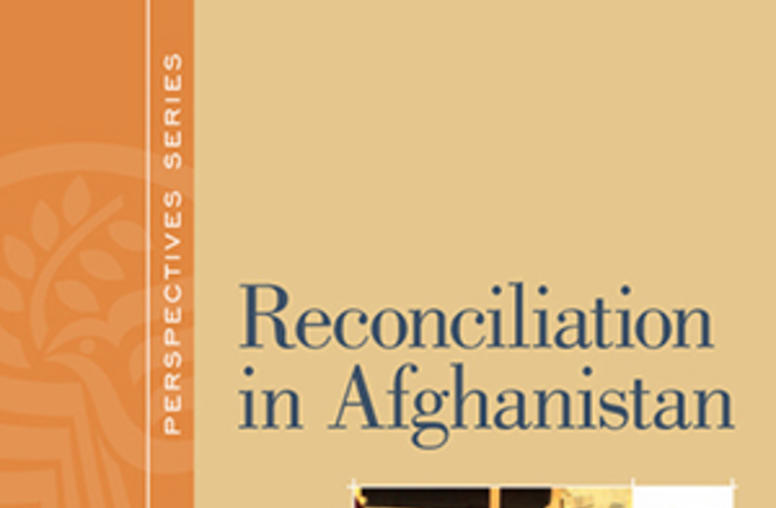
Reconciliation in Afghanistan
In this timely and thorough volume, Michael Semple analyzes the rationale and effectiveness post-2001 attempts at reconciliation in Afghanistan. He explains the poor performance of these attempts and argues that rethinking is necessary if reconciliation is to help revive prospects for peace and stability in Afghanistan.
2008-2009 Winning Essay - National Third Place Winner
National Third Place Winner Timothy “Sean” Ray Mississippi School for Mathematics and Science Columbus, Mississippi Coordinator: Donna Ray
2008-2009 Winning Essay - National First Place Winner
National First Place Winner Sophia Sanchez Ladue Horton Watkins High School St. Louis, Missouri Coordinator: Megan McCorkle
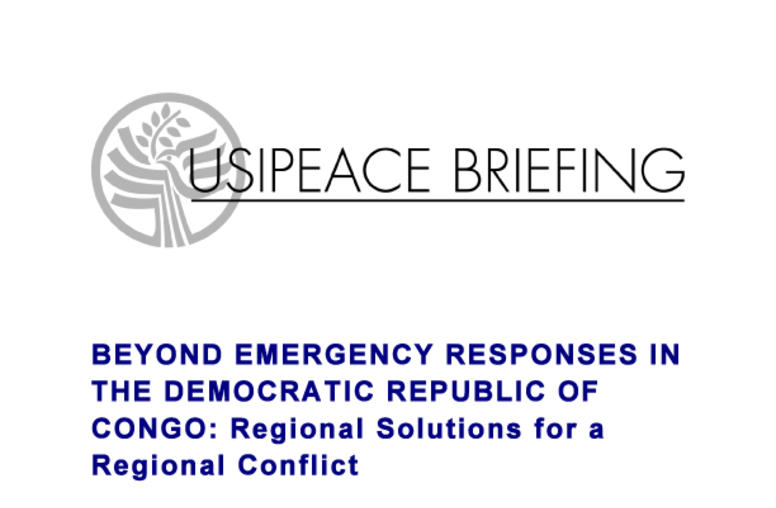
Beyond Emergency Responses in the Democratic Republic of Congo
In the Democratic Republic of Congo, the deadly conflict has claimed the lives of millions and appears to have no end. A new USIP report provides context to this protracted war, assesses current approaches and presents new options on how to resolve it.
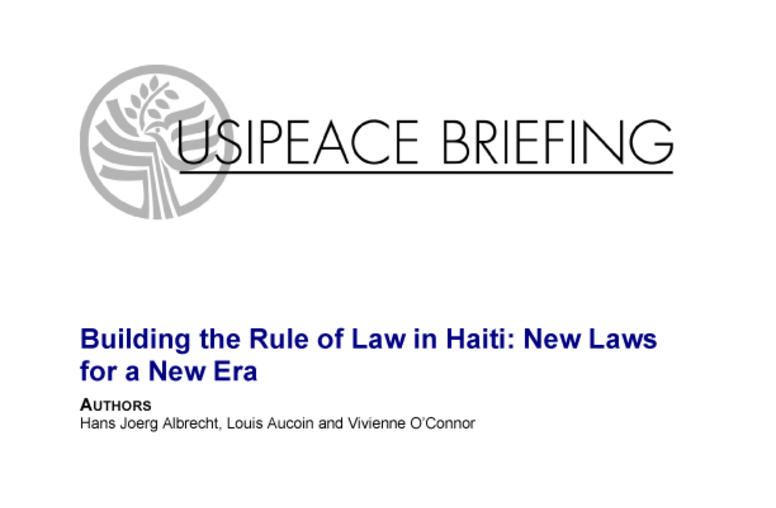
Building the Rule of Law in Haiti: New Laws for a New Era
A new USIP report on Haiti's criminal laws examines the shortcomings of the impoverished country's criminal code – and finds promising opportunities to modernize and reform the laws. Despite Haiti's numerous challenges, the report concludes that new laws in Haiti will usher in a new era where the criminal justice system serves all people of Haiti, including the poor, vulnerable and marginalized, and upon which respect for the law and legitimacy of a stronger judicial system overall can be bui...
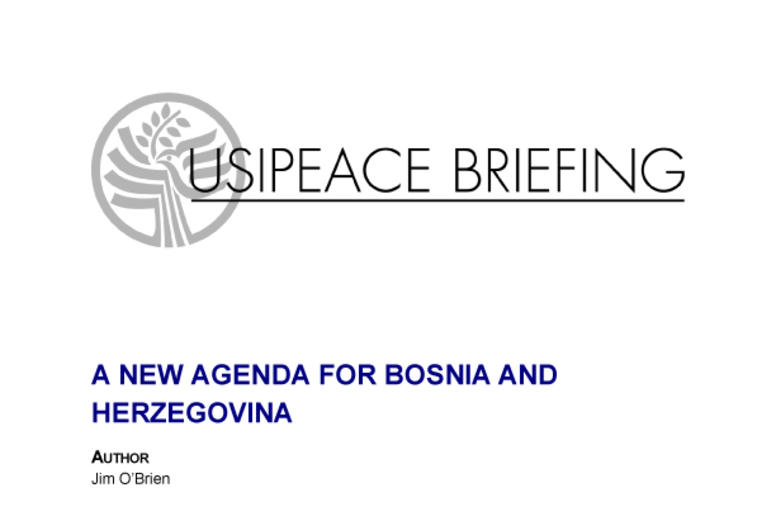
A New Agenda for Bosnia and Herzegovina
As concerns grow about Bosnia's post-war recovery, USIP presents its fourth report on recent developments in Bosnia and Herzegovina and various options the U.S. government, Europe and Bosnia could pursue to prevent a return to violence there. In his paper, author Jim O'Brien, who served as the presidential envoy for the Balkans in the 1990s, cautions against taking a big initiative in Bosnia to head off a future crisis, but rather advocates taking on many, smaller battles that will ultimately...
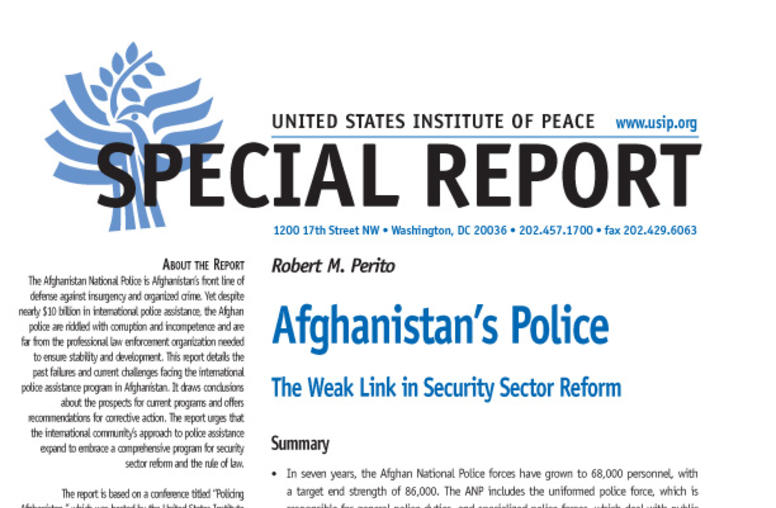
Afghanistan's Police
Summary In seven years, the Afghan National Police forces have grown to 68,000 personnel, with a target end strength of 86,000. The ANP includes the uniformed police force, which is responsible for general police duties, and specialized police forces, which deal with public order, counternarcotics, terrorism, and border control. Despite the impressive growth in numbers, the expenditure of $10 billion in international police assistance, and the involvement of the United States, the Eur...
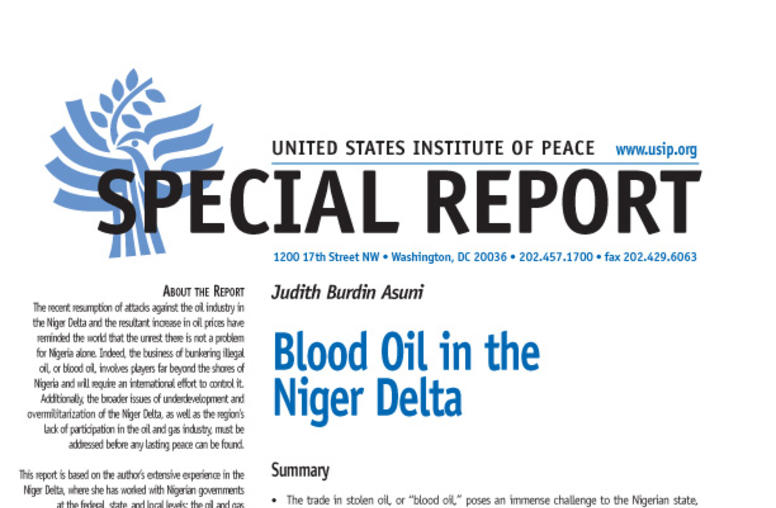
Blood Oil in the Niger Delta
The trade of stolen oil, or “blood oil,” in Nigeria is fueling a long-running insurgency in the resource-rich Niger Delta region that has claimed many lives. Oil “bunkering” – or theft – has fomented the armed conflict in the region, providing militant groups with funds to purchase weapons, and has increased instability in oil prices on world energy markets. Nigerian President Umaru Yar’Adua in July 2008 asked the Group of Eight nations for help in dealing with the problem, but no concrete ac...
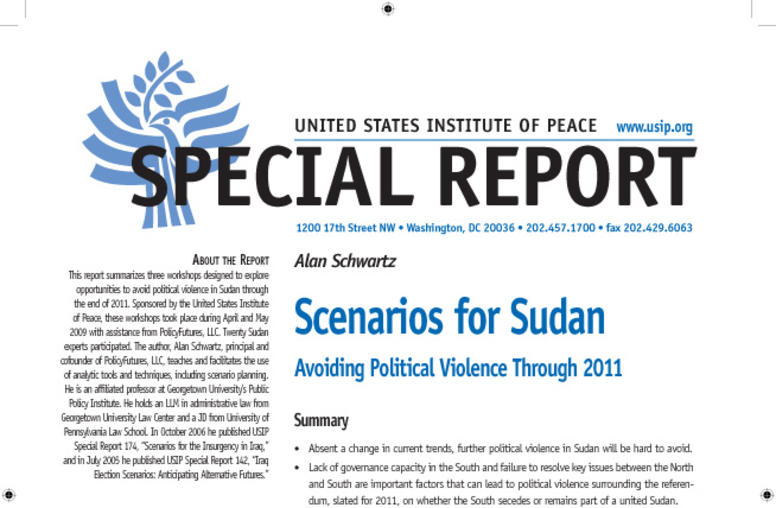
Scenarios for Sudan: Avoiding Political Violence Through 2011
More political violence will be hard to avoid in Sudan, barring a quick change in current trends, according to a new USIP report. Much of the outcome hinges on the handling of issues that involve the 2011 referendum on whether the South secedes from Sudan.
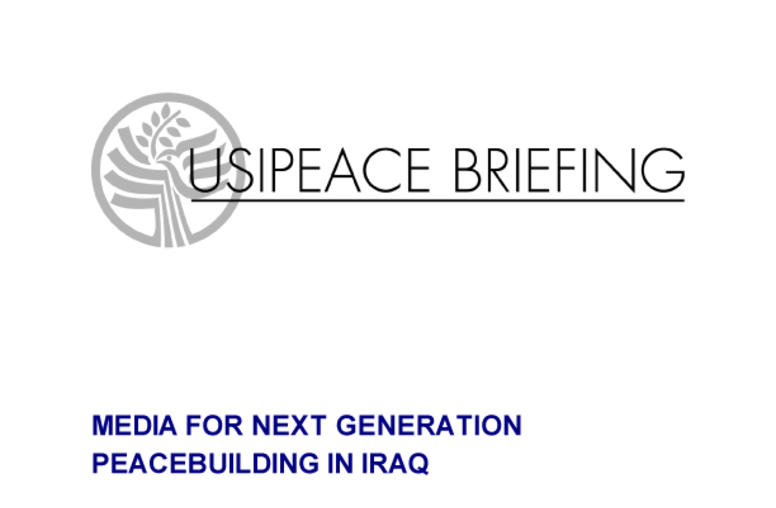
Media for Next Generation Peacebuilding in Iraq
In order to address some of the challenges facing youth in Iraq, USIP and its Iraqi partners created a multimedia program that provides Iraqi teenagers with tools that can help them grow into independent, empowered citizens within a complex society. In April 2009, USIP’s Center of Innovation for Media, Conflict and Peacebuilding organized an expert working group in Erbil, Iraq to discuss various peace media programming relevant for Iraqi youths. This report offers an introduction to USIP’s yo...